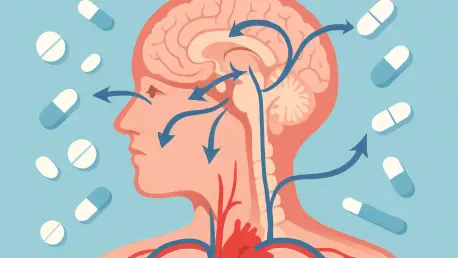
The intricate challenge of retraining the immune system to tolerate specific self-antigens without compromising its protective capabilities has driven the development of highly sophisticated therapeutic platforms. The emergence of engineered extracellular vesicles (EVs) represents a significant

A ghost from medicine's past, a chemical once notorious for its lethal side effects in the pursuit of weight loss, is being cautiously resurrected by scientists aiming to solve the modern obesity crisis. This ambitious endeavor revisits a century-old idewhat if a drug could make the human body

Deep within the microscopic confines of every human cell, a biological masterpiece unfolds not as a simple string of code but as a dynamic, three-dimensional sculpture that dictates life itself. A landmark study has now provided the most detailed and extensive atlas of this hidden architecture,

A promising class of anti-cancer drugs, designed with pinpoint precision to kill tumor cells, was abruptly sidelined by a mysterious and life-threatening side effect, leaving a potential breakthrough in oncology on the shelf. This clinical roadblock highlighted a fundamental challenge in modern

The perplexing reality that a medication meticulously designed to target cancer cells in the lungs can unexpectedly trigger adverse reactions in the heart has long been one of pharmacology's most frustrating and dangerous puzzles. For decades, the path a drug takes after being administered has been

The cutting edge of cancer treatment often involves a delicate and high-stakes balance between revolutionary efficacy and severe, sometimes fatal, side effects. This reality has been starkly highlighted as a pivotal late-stage clinical trial for a promising new cancer therapy, ifinatamab deruxtecan